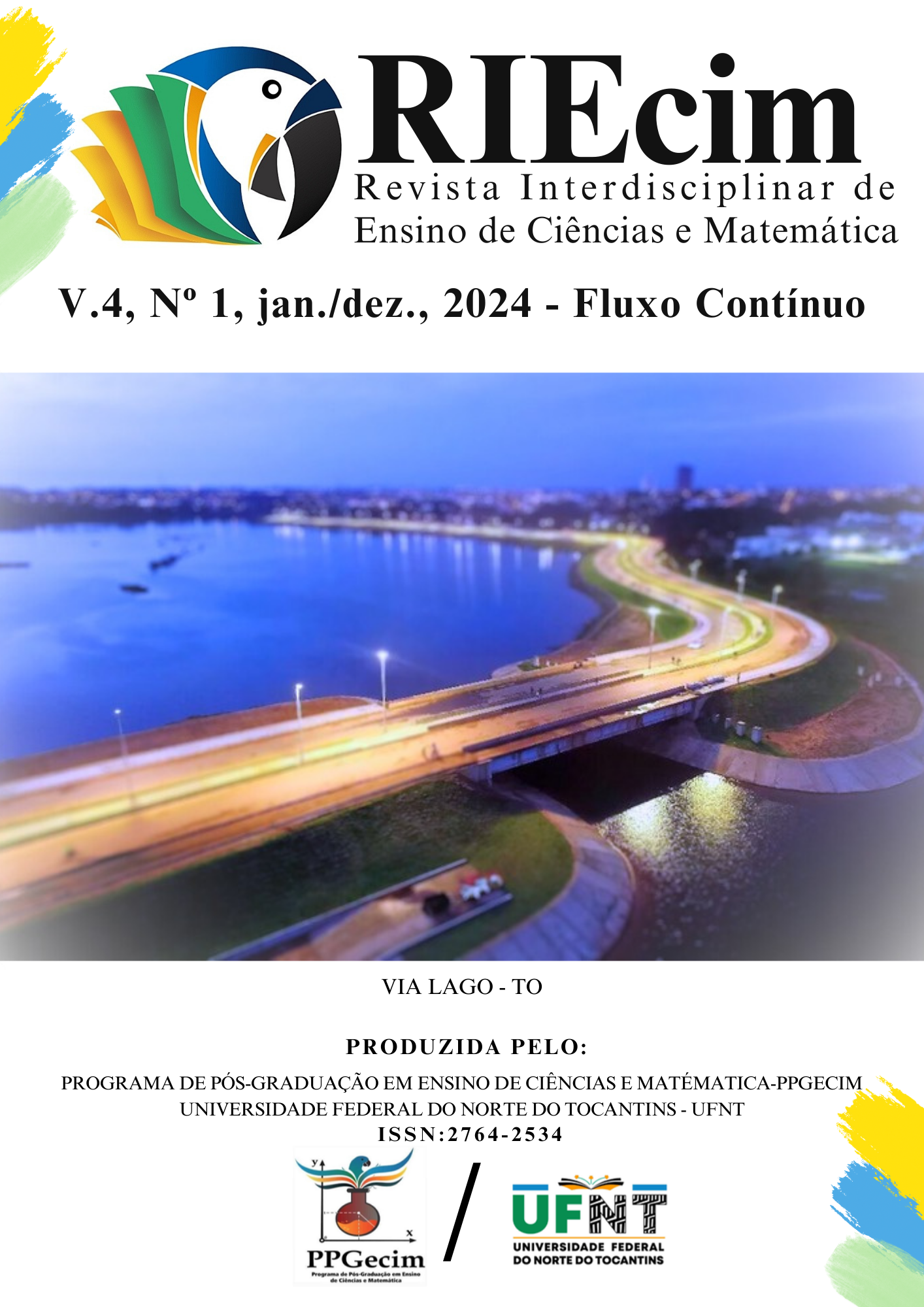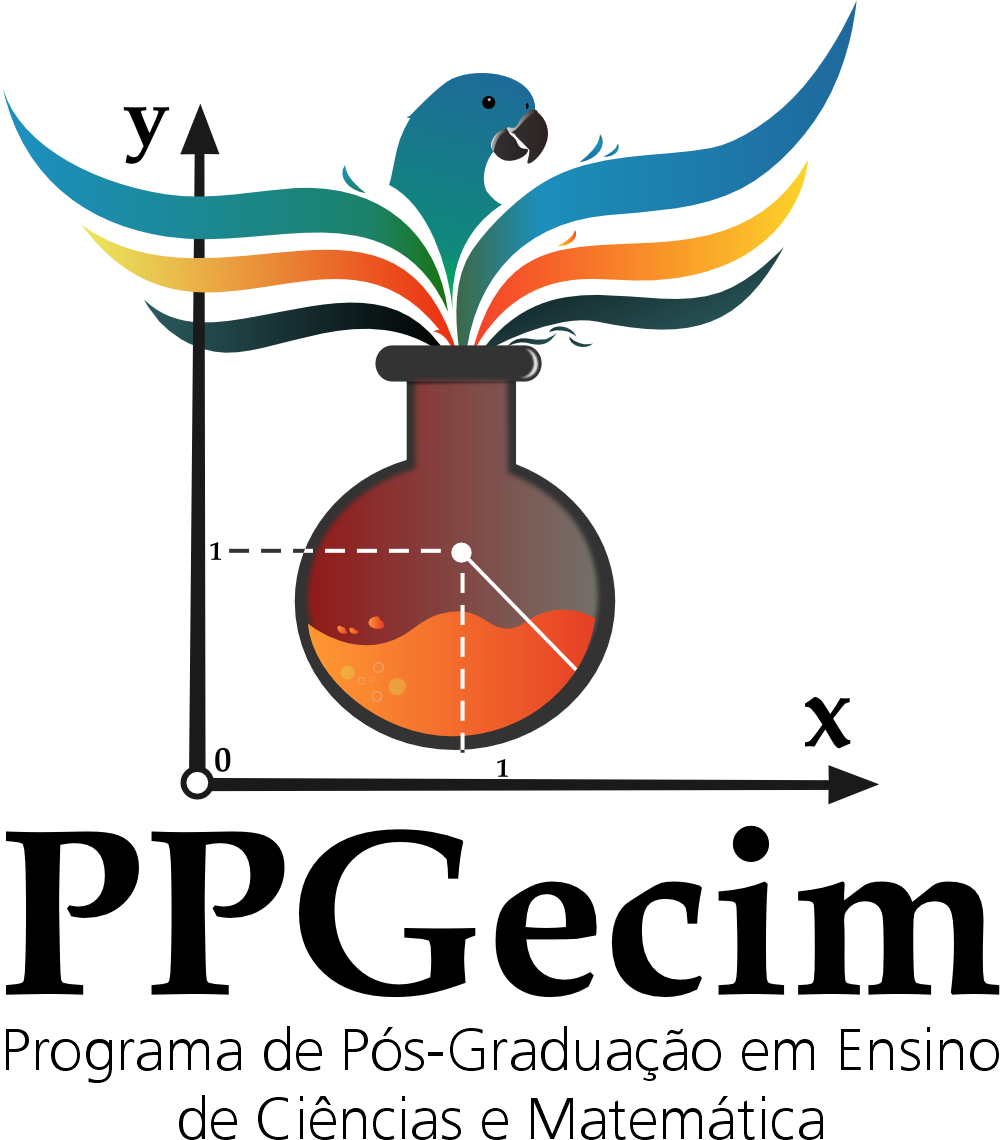¿LA SUSTITUCIÓN DE NÚMEROS INDO-ARÁBIGOS POR LETRAS DEL ALFABETO AFECTA LA COMPRENSIÓN Y REALIZACIÓN DE OPERACIONES MATEMÁTICAS?
Keywords:
Mathematics Education, Numerical Representation, Mathematical Cognition, Teaching MethodsAbstract
In a context where the scientific method faces scrutiny and challenges, this study aimed to investigate the impact of substituting Indo-Arabic numerals with letters of the alphabet on understanding and performing basic mathematical operations. The primary objective was to analyze the impact of this substitution on the participants' ability to carry out such mathematical operations, based on their perceptions. Employing a qualitative approach, the research was conducted in a specialization course in Rural Education, where participants engaged in activities simulating the substitution of numerals with letters. The findings indicated that the participants initially faced significant difficulties, reflecting a challenge in cognitive adaptation to the new numerical representation system. This research contributes to understanding pedagogical strategies in mathematics education, highlighting the importance of considering diverse teaching methods.
References
BARGUIL, Paulo Meireles. Algarismo, número, numeral e dígito: esclarecendo o significado desses termos. In: SOUSA, Ana Cláudia Gouveia De; SANTANA, Larissa Elfísia de Lima; BARRETO, Marcilia Chagas (eds.). As Múltiplas linguagens da Educação Matemática na formação e nas práticas docentes. 1. ed. Fortaleza: EDUECE, 2008. p. 311–332. Disponível em: http://www.repositorio.ufc.br/handle/riufc/46502. Acesso em: 30 jul. 2023.
CARAÇA, Bento de Jesus. Conceitos Fundamentais de Matemática. Lisboa: Gradiva, 1998.
DAMAZIO, Ademir; ROSA, Josélia Euzébio Da; EUZÉBIO, Juliana da Silva. O ensino do conceito de número em diferentes perspectivas. Educação Matemática Pesquisa, [S. I.], v. 14, n. 1, 2012. Disponível em: https://revistas.pucsp.br/index.php/emp/article/view/8628. Acesso em: 1 ago. 2023.
D’AMBROSIO, Ubiratan. Educação Matemática: da teoria à prática. 23. ed. Campinas: Papirus Editora, 2012.
D’AMBROSIO, Ubiratan. Etnomatemática: elo entre as tradições e a modernidade. 5. ed. Belo Horizonte: Autêntica Editora, 2015.
D’AMBROSIO, Ubiratan. Educação para uma sociedade em transição. 3. ed. São Paulo: Editora Livraria da Física, 2016.
FACHIN, Odília. Fundamentos de Metodologia. 5a ed. São Paulo: Saraiva, 2006.
FREIRE, Paulo. Pedagogia da autonomia: saberes necessários à prática educativa. 15. ed. São Paulo: Paz e Terra, 2000.
KAMII, Constance. A criança e o número: implicações educacionais da teoria de Piaget para a atuação com escolares de 4 a 6 anos. Traduzido por Regina A. de Assis. 39. ed. Campinas: Papirus Editora, 2012.
KNIJNIK, Gelsa; WANDERER, Fernanda; GIONGO, Ieda Maria; DUARTE, Claudia Glavam. Etnomatemática em movimento. 2. ed. Belo Horizonte: Autêntica Editora, 2013.
LIMA, Elon Lages; CARVALHO, Paulo César Pinto; WAGNER, Eduardo; MORGADO, Augusto César. A Matemática do Ensino Médio. Rio de Janeiro: Sociedade Brasileira de Matemática, 2001. v. 1
LOPES, Thiago Beirigo; LEIVAS, José Carlos Pinto. Contar nos dedos: a conceitualização de número e a operação da adição. Pedagogia em Foco, [S. I.], v. 12, n. 7, p. 157–174, 2017. Disponível em: http://revista.facfama.edu.br/index.php/PedF/article/view/263. Acesso em: 30 jul. 2023.
MARCONI, Marina de Andrade; LAKATOS, Eva Maria. Metodologia do trabalho científico. 5. ed. São Paulo: Editora Atlas, 2002.
MONTEIRO, Roberta Borges; LARANJEIRA, Suyanne Rodrigues Alves; RIBEIRO NETO, Jucicleia Gomes; ANDRADE, Leyde Dayane Martinho De. Contribuição da resolução de problemas como metodologia de ensino de matemática. REAMEC - Rede Amazônica de Educação em Ciências e Matemática, Cuiabá, v. 8, n. 2, p. 57–68, 2020. https://doi.org/10.26571/reamec.v8i2.9396.
MORENO, Heliete Martins Castilho. Números e Sistemas de numeração. Cuiabá: UFMT em rede, 2021.
MOYA, Paula Tamyris; MORAES, Silvia Pereira Gonzaga. Organização do Ensino do Conceito de Número no Primeiro Ano de Escolarização
Organization of Teaching the Concept of Number in the First Year of Schooling. Educação Matemática Pesquisa, [S. I.], v. 23, n. 1, p. 530–560, 2021. https://doi.org/10.23925/1983-3156.2021v23i1p530-560.
PIAGET, Jean; INHELDER, Barbel. A psicologia da criança. Traduzido por Octavio Mendes Cajado. 5. ed. Rio de Janeiro: Difel, 2011.
PIAGET, Jean; SZEMINSKA, Alina. A gênese do número na criança. Traduzido por José Oiticica. 3. ed. Rio de Janeiro: Zahar, 1981.
RODRIGUES, Aroldo Eduardo Athias; DINIZ, Hugo Alex. Sistemas de Numeração: Evolução Histórica, Fundamentos e Sugestões para o Ensino. Ciência e Natura, [S. I.], v. 37, n. Especial PROFMAT, p. 578–591, 2015. https://doi.org/10.5902/2179460X14664.
ROZAL, Edilene Farias; SOUZA, Ednilson Sergio Ramalho De; SANTOS, Neuma Teixeira Dos. Aprendizagem em matemática, aprendizagem significativa e neurociência na educação dialogando aproximações teóricas. REAMEC - Rede Amazônica de Educação em Ciências e Matemática, Cuiabá, v. 5, n. 1, p. 143–163, 2017. https://doi.org/10.26571/2318-6674.a2017.v5.n1.p143-163.i5349.
SAMPIERI, Roberto Hernández; COLLADO, Carlos Fernandez; LUCIO, Pilar Baptista. Metodologia de Pesquisa. Traduzido por Daisy Vaz de Moraes. 5. ed. Porto Alegre: Penso, 2013.
SCHLIEMANN, Analúcia Dias; CARRAHER, David William; CARRAHER, Terezinha Nunes. Na vida dez, na escola zero. São Paulo: Cortez, 1988.
VIGOTSKY, Lev Semenovich. A formação social da mente: o desenvolvimento dos processos psicológicos superiores. Traduzido por José Cipolla Neto, Luís Silveira Menna Barreto, Solange Castro Afeche. 7. ed. São Paulo: Martins Fontes, 2007.
Downloads
Published
How to Cite
Issue
Section
License
Copyright (c) 2024 Thiago Beirigo Lopes, Dailson Evangelista Costa, Luis Andrés Castillo

This work is licensed under a Creative Commons Attribution-NonCommercial 4.0 International License.
Copyright Policy
Copyrights are retained by the authors, who grant RIEcim the exclusive rights for first publication. Authors will not be remunerated for the publication of their work in this journal. Authors are permitted to enter into separate, additional contractual arrangements for the non-exclusive distribution of the work's published version in this journal (e.g., post it to an institutional repository, on a personal website, publish a translation, or as a book chapter), with acknowledgement of authorship and initial publication in this journal. The Journal's editors have the right to make textual adjustments and adaptations to conform to publication standards.
Open Access Policy
This journal provides immediate open access to its content, following the principle that freely providing scientific knowledge to the public contributes to the global democratization of knowledge. Users can read, download, copy, distribute, print, search, or use the content for any legal purpose, respecting national copyright laws and without seeking prior permission from the publisher or the author. The opinions presented in the articles are the responsibility of the authors. The Journal does not charge Article Processing Charges (APCs).
Licensing Policy - Usage License
Licensed under the Creative Commons Attribution-NonCommercial 4.0 International (CC BY-NC 4.0) License. This license allows sharing, copying, redistributing the manuscripts published in RIEcim in any medium or format. Additionally, it allows adapting, remixing, transforming, and building upon the material, as long as proper credit is given to the author and initial publication in this journal is acknowledged.






















